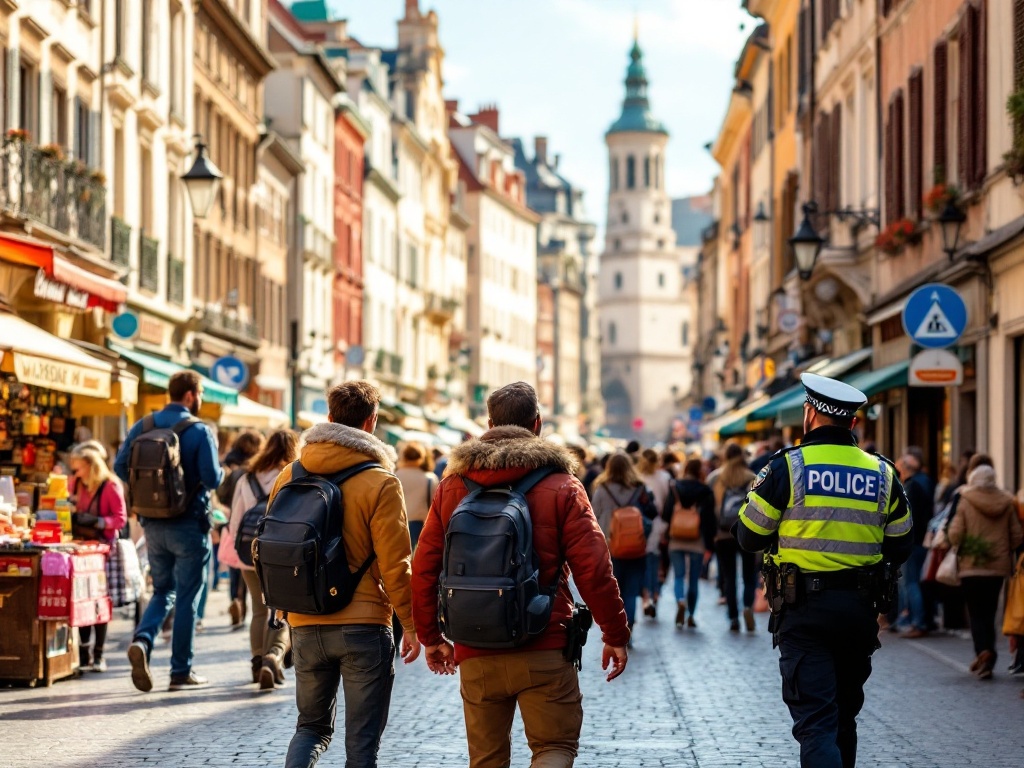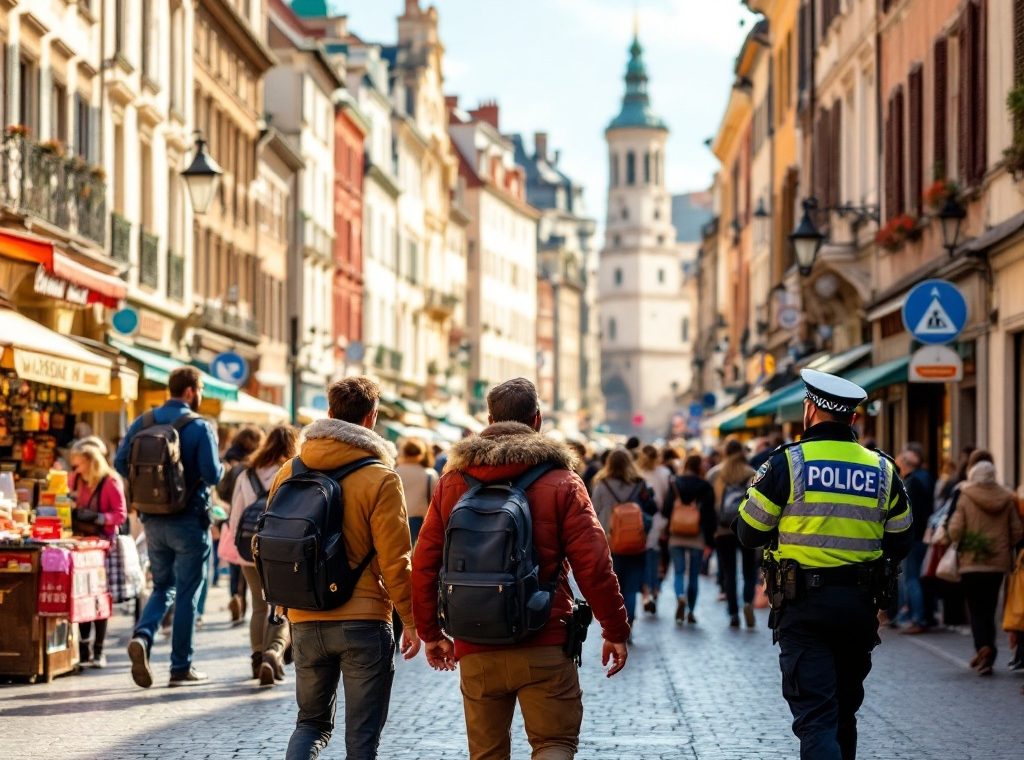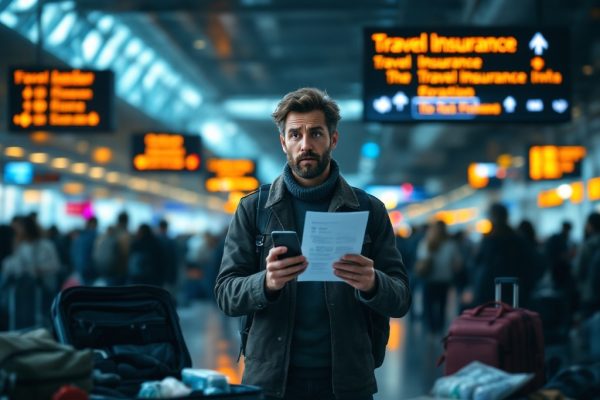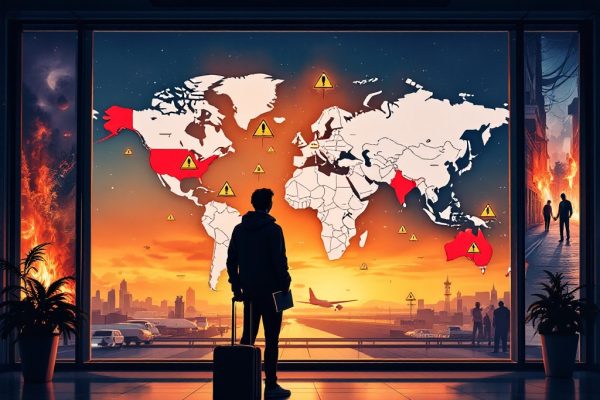Is Europe Safe? What You Need to Know Before Travel
Planning a European adventure? Europe offers incredible experiences, but smart travelers prioritize safety. From petty theft in bustling tourist spots to navigating diverse local laws, this guide provides essential safety tips for a worry-free trip. Discover how to protect your belongings, stay informed about potential risks, and access emergency services. Prepare for a safe and memorable European journey – read on to learn more.
Important information

- Europe is generally safe, but research your specific destinations due to varying safety levels.
- Petty theft and scams are common. Be aware in crowded areas, secure belongings, and use money belts.
- 112 is the EU-wide emergency number. Research and save local emergency numbers too.
- Travel insurance is recommended. Know your embassy’s contact information.
- Respect local laws and customs. Learn basic phrases and be culturally sensitive.
Is Europe Safe for Travelers?
Europe is generally a safe place to travel, with many countries having low crime rates. However, safety levels vary across the continent, so it’s wise to research your specific destination and exercise caution while being mindful of your surroundings.
Understanding Travel Safety in Europe
Traveling safely in Europe requires preparation and vigilance. Before embarking on your journey, research your destination thoroughly, familiarizing yourself with local conditions and potential safety concerns. Petty theft is common in crowded tourist areas, so protect your belongings by keeping bags close and wallets concealed. Maintain awareness of your surroundings, especially at popular attractions or in large crowds. Staying informed about current events and respecting local customs can also contribute to a safer trip. By taking these precautions, you can ensure a secure and memorable European adventure.
Common Safety Concerns Across Europe
Petty theft, such as pickpocketing, and various scams are common concerns for travelers across Europe. Staying aware of your surroundings can help protect you. Terrorism also remains a threat in many European countries, so it’s wise to stay informed about current events and exercise caution.
Safety for Solo and Female Travelers
Europe is generally a safe destination for solo female travelers, but it’s always wise to exercise caution. Avoid walking alone at night if possible, and stay alert to your surroundings. Thorough destination research is essential, and connecting with fellow travelers can provide valuable support and camaraderie. Choosing accommodations with strong safety reviews will also contribute to a more relaxing and enjoyable trip. Here are some safety tips for solo female travelers in Europe:
- Avoid walking alone at night, especially in unfamiliar or poorly lit areas. If you must walk alone, stick to well-lit and populated streets.
- Stay alert to your surroundings. Be aware of who is around you and what is happening. Don’t be afraid to make eye contact with people, as this can deter potential attackers.
- Research your destination thoroughly. Learn about the local customs, laws, and any potential safety concerns. This will help you to stay safe and avoid any unpleasant surprises.
- Connect with fellow travelers. There are many online forums and social media groups where you can connect with other solo female travelers. This can be a great way to get advice, support, and companionship.
- Choose accommodations with strong safety reviews. When booking your accommodation, be sure to read reviews from other travelers. This will give you a good idea of the safety of the area and the hotel itself.
What Are the Safety Risks When Traveling to Europe?
Safety
Petty theft, like pickpocketing and bag snatching, is common in tourist areas. Tourists are often targeted by scams, such as fake charities and rigged games. Stay aware of your surroundings and watch your belongings, especially in crowds.
While Europe is generally stable, protests and demonstrations can occur in some areas. Check travel advisories and stay informed about potential unrest. Although terrorism is a global concern, the risk in Europe is relatively low.
Health
Depending on the region and season, natural disasters like earthquakes, floods, and wildfires can happen. Be aware of these potential risks and check weather forecasts. Air pollution can also be a concern in some cities, particularly during summer.
Food and water safety standards are generally high, but food poisoning and waterborne illnesses are still possible. Exercise caution with street food, and be aware that tap water might be unsafe in certain areas. Consult your doctor about recommended vaccinations and necessary precautions for your trip.
Crime and Financial Scams
Safeguard your valuables and finances during your European adventures. Pickpockets, thieves, and scammers are common in tourist hotspots, so consider using a money belt to keep your cash, cards, and passport hidden. Exercise caution when using ATMs or making purchases with your bank card, adhering to safety protocols. Stay vigilant and enjoy your trip.
Political Unrest and Terrorism
When traveling in Europe, be aware that political instability and terrorism are risks in certain countries. Stay informed about potential safety risks by checking government travel advisories and alerts, and by monitoring local news. This awareness will contribute significantly to your safety. Always stay alert to your surroundings.
Natural Disasters and Environmental Risks
Europe’s breathtaking scenery is vulnerable to a range of environmental hazards. These include droughts and intense wildfires, storms, landslides, and floods. Earthquakes and avalanches also present potential dangers. These natural events can disrupt travel plans and pose safety risks for tourists. Careful planning and staying informed are key to a safer and more enjoyable European adventure. Here’s what you need to know:
Be aware of potential hazards. Research the specific environmental risks in the areas you plan to visit. Check weather forecasts and heed any warnings issued by local authorities.
Pack accordingly. Bring appropriate clothing and gear for various weather conditions. This might include sturdy shoes for hiking, rain gear, and layers for changing temperatures.
Stay informed. Monitor weather reports and news updates for any changes in conditions. Be prepared to adjust your itinerary if necessary.
Have a backup plan. Know your evacuation routes and have alternative accommodations in mind in case of emergencies.
Share your itinerary. Let someone at home know your travel plans, including your destinations and estimated return dates.
Health Risks: Food Poisoning and Water Safety
Traveling in Europe offers incredible experiences, but it’s wise to be aware of potential foodborne illnesses. While tap water is typically safe across the continent, checking local advisories about water quality is always a good idea. Similarly, being mindful of food safety practices can help ensure a healthy and enjoyable trip. Here are some tips for staying healthy:
- Research restaurants beforehand, checking online reviews for mentions of food safety issues.
- Opt for cooked foods over raw ones whenever possible.
- Be cautious with street food vendors, ensuring they maintain proper hygiene.
- Wash your hands frequently, especially before eating.
- Carry hand sanitizer with you for times when soap and water aren’t available.
Which are the Safest and Least Safe Countries in Europe?
Safest European Countries:
- Iceland boasts the world’s lowest Global Peace Index score of 1.1, indicative of its exceptionally peaceful environment.
- Denmark maintains a low crime rate, recording only 0.9 intentional homicides per 100,000 people in 2020.
- Switzerland’s safety is reinforced by its strong rule of law and effective justice system.
- Other safe countries include Slovenia, Portugal, Austria, the Czech Republic, Croatia, and Poland, all consistently scoring high on safety indices due to low crime and political stability.
European Countries with Higher Safety Risks:
- France reported a significantly higher rate of intentional homicides, with 74.9 per 1 million people in 2021.
- Spain faces challenges with robberies, reporting 30.1 per 1,000 people.
- Other countries with elevated safety risks include Belgium, Italy, Spain, Greece, Ireland, Germany, the Netherlands, the UK, Sweden, and Finland.
- Petty theft is a particular concern in tourist areas and certain neighborhoods of major cities like Paris, Rome, Barcelona, and London.
Travelers are advised to research specific areas within these countries and exercise caution, especially at night.
Top Safest Countries: Iceland, Denmark, and More
Several European countries are famous for their safety, including:
- Iceland,
- Denmark,
- Switzerland,
- Norway,
- Sweden,
- Finland.
The EU has 14 of the world’s 20 safest nations. Iceland and Denmark are among the safest countries in the EU. These countries have remarkably low crime rates and offer a superior quality of life.
Countries with Higher Safety Risks
Traveling to certain countries carries greater safety risks, particularly those experiencing political unrest or high crime rates. Before embarking on a European adventure, research your chosen cities and regions thoroughly, as safety levels can fluctuate dramatically even within the same country. For instance, popular tourist hotspots in Spain and Italy can sometimes see elevated crime. Advance planning and staying informed are crucial for a secure and enjoyable trip.
How to Prepare for a Safe Trip to Europe
Prioritize safety. Thoroughly research your destinations, identifying safe neighborhoods and potential risks. Share your itinerary with a trusted friend or family member. Learn a few basic local phrases. Consider using anti-theft bags and storing valuables in your hotel safe. Remain vigilant, especially in crowded areas.
Ensure seamless communication. Check your phone’s international capabilities. Download offline maps and save emergency contacts.
Get comprehensive travel insurance. Ensure your policy covers medical emergencies, lost luggage, and trip cancellations. Familiarize yourself with the policy details.
Prepare for emergencies. Save local emergency numbers in your phone. Inform your bank and phone provider of your travel dates. Keep copies of your passport, visa, and other important documents separate from the originals, including electronic copies.
Be culturally sensitive. Research local customs and dress respectfully. Learn basic etiquette and greetings. A translation app or phrasebook can be invaluable.
Understand local laws. Familiarize yourself with local laws and regulations. Respect cultural sensitivities to avoid potential problems.
Security Measures and Precautions
Use the hotel safe to protect your valuables.
Be vigilant, especially in crowded areas.
Share your travel plans with someone at home.
Learning basic local phrases can enrich your experience.
Keep emergency contact information easily accessible.
Ensure your phone works internationally for maps and important information.
Trust your instincts – if something feels unsafe, leave.
Travel Insurance and Emergency Plans
Travel insurance is a wise precaution, protecting you from unforeseen issues. Familiarize yourself with local emergency numbers and keep your embassy or consulate’s contact information readily accessible. These contacts can prove invaluable in a crisis.
Cultural Awareness and Local Customs
Researching a destination’s culture enhances both the safety and enjoyment of your travels. By understanding local customs, you can avoid misunderstandings and foster deeper connections with the places you visit. Before embarking on your trip, learn about norms related to activities like drinking and photography. This knowledge helps prevent unintentional offense and keeps you out of legal trouble. More importantly, cultural research enriches your travel experience.
Safety Tips for Travelers in Europe
Stay aware of your surroundings and be mindful of any suspicious activity, avoid displaying expensive jewelry or electronics. Share a copy of your itinerary with someone you trust and learn basic local phrases. Familiarize yourself with local emergency numbers and save them in your phone.
- Be vigilant of your surroundings and any suspicious behavior.
- Avoid showcasing valuable items like expensive jewelry or electronics.
- Provide a copy of your travel plans to a trusted contact.
- Learn basic phrases in the local language.
- Save local emergency numbers in your phone.
Protect your valuables by using hotel safes for important documents, cash, and electronics. Consider using anti-theft bags for added security. Exercise caution in crowded places, as pickpockets are common. Never leave your bags unattended, especially in public areas.
- Utilize hotel safes for passports, cash, and electronics.
- Consider using anti-theft bags for extra security.
- Be cautious in crowded areas, as pickpockets are prevalent.
- Keep your bags within sight at all times.
Inform your bank and credit card companies of your travel dates to avoid any issues with your cards being blocked. Use ATMs located in secure, well-lit areas, preferably inside banks. Avoid using public Wi-Fi for online banking, as it can be insecure. Regularly check your bank accounts for any unauthorized transactions.
- Notify your bank of your travel dates.
- Use ATMs in secure locations, such as inside banks.
- Refrain from using public Wi-Fi for online banking.
- Monitor your bank accounts for suspicious activity.
Use official taxis or reputable ride-hailing services whenever possible. Always validate your tickets on public transportation. Avoid traveling in empty train cars or buses late at night, and keep your belongings close and in sight. Stay aware of your surroundings while using public transport.
- Opt for official taxis or ride-hailing services.
- Validate your tickets on public transportation.
- Avoid empty train cars late at night.
- Keep your belongings close and visible.
- Maintain awareness of your surroundings on public transport.
Common-Sense Precautions for a Safe Trip
Secure your belongings and be mindful of your surroundings.
Avoid isolated or poorly lit areas, especially at night.
Use hotel safes to store valuables.
Keep someone informed about your travel plans.
Learn basic local phrases.
Ensure you have easy access to emergency contact information.
Confirm your phone plan includes map access.
Trust your instincts. If a situation feels unsafe, remove yourself.
Theft-Proofing and Protecting Belongings
Invest in anti-theft bags to protect your belongings and keep your valuables close at hand.
Avoid displaying expensive jewelry or electronics to minimize attracting unwanted attention.
Utilize hotel safes for securing passports, extra cash, and other important documents.
Exercise extra caution in crowded areas like bustling markets and popular tourist attractions, as these can be prime spots for pickpockets.
Carry only the necessary items for each day to reduce the risk of loss or theft.
Consider using a money belt for an added layer of security, keeping your cash and cards concealed.
Above all, stay aware of your surroundings and keep track of your belongings at all times.
Bank Card and Internet Security Tips
Check your surroundings and shield your PIN when using an ATM.
Avoid using public Wi-Fi for banking transactions.
Use a VPN for a more secure way to access your accounts online.
Regularly review your bank statements for any unauthorized activity.
Safe Use of Taxis and Public Transport
Choose reputable taxi companies or ride-hailing apps, and always settle the fare in advance.
Pre-booked transfers provide a convenient and secure alternative, eliminating the hassle of finding a taxi at the airport.
Europe’s public transport is generally safe and efficient, but stay alert for pickpockets, especially during rush hour.
Secure your valuables and be mindful of your surroundings.
What to Know About Driving and Walking Safety in Europe?
Essential Rules for European Road Trips
- Keep right, buckle up (everyone!), and ensure children are in appropriate car seats or boosters.
- Blood alcohol limits are stringent (often 0.05% or lower), so plan your drinks accordingly.
- Hands-free devices are essential, as using your phone directly is prohibited.
- Speed limits are generally lower than in other regions and strictly enforced, so stay vigilant.
- Be prepared for motorway tolls.
- If your license isn’t from within the EU, an international permit is a good idea.
- Some countries require headlights at all times, so check local regulations.
Staying Safe in European Cities
- While exploring European cities on foot, especially at night, is generally safe, it’s always smart to be cautious.
- Stick to well-lit streets and avoid parks or dimly lit areas after dark.
- Stay aware of your surroundings and avoid distractions like your phone.
- If you feel uncomfortable, opt for a taxi or public transport.
- A personal safety alarm can offer extra peace of mind.
- Before heading out, share your itinerary and estimated arrival time with someone you trust.
- In the unlikely event of a confrontation, prioritize your safety by handing over valuables and avoiding resistance.
Driving Safety and Regulations
Research traffic laws. Before your European road trip, research the specific regulations for each country you’ll be visiting, including International Driving Permit requirements.
Understand local driving habits. Familiarize yourself with local driving customs and road conditions, which can vary significantly between countries.
Observe traffic rules. Pay close attention to speed limits, traffic signals, and road signs, as they may differ from what you’re accustomed to.
Update your GPS. Ensure your GPS is updated with the latest local regulations for each country on your itinerary.
Prepare for tolls. Be aware of and prepared for tolls on many European motorways.
Night Safety: Walking Alone
While European cities are generally safe, it’s wise to minimize walking alone after dark. Always be mindful of your surroundings.
Emergency Contacts and Services in Europe
In Europe, 112 is the universal emergency number, connecting you to police, fire, and ambulance services. While each country maintains its own emergency numbers, 112 serves as a reliable point of contact.
For local emergency numbers, check with your embassy.
Europe boasts robust emergency medical services. However, carrying a basic first-aid kit is always prudent.
Don’t forget to secure international health insurance before your trip. Familiarize yourself with the locations of hospitals and clinics near your destinations.
Important Emergency Numbers
In the EU, 112 is the universal emergency number, connecting you to police, fire, and medical services. However, individual countries also retain their own specific emergency contacts. Before traveling, research these local numbers and ensure your phone operates correctly abroad. Consider a local SIM card or an international roaming plan for reliable communication.
Emergency Medical Support and Services
In the EU, 112 is the essential number for medical emergencies. While this number is vital, familiarizing yourself with local emergency contacts can also be beneficial. Before traveling, research the specific numbers for police, fire, and ambulance services at your destination. EU emergency services are generally well-equipped and efficient. Should an emergency arise, remain calm and clearly explain the situation to the operator for swift assistance.
















